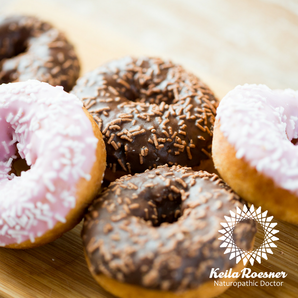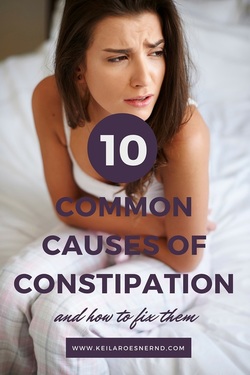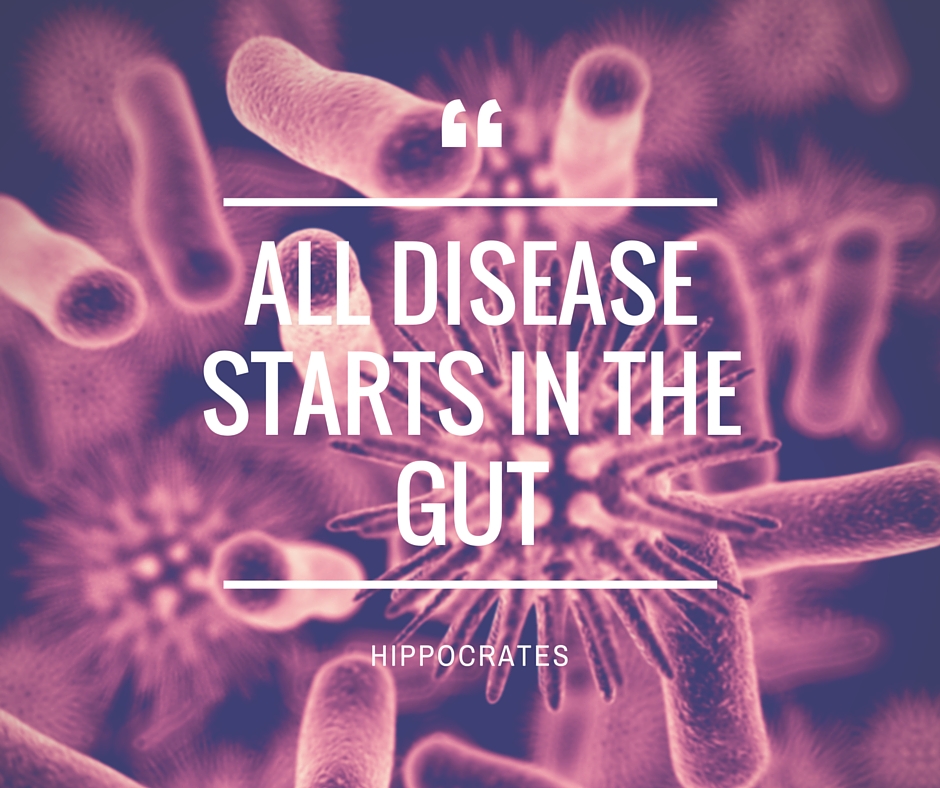 Estrogen – it’s not a dirty word. Estrogen plays an important role through the course of our reproductive lives and beyond. It regulates our menstrual cycle, strengthens our bones, controls our cholesterol, and much more. When our estrogen levels go “out of tune” we experience PMS or menopausal symptoms. But even before menopause, varying levels of this vital hormone can wreak havoc. That’s because estrogen requires a delicate balance with other hormones. When that balance is disturbed, we can experience a wide range of frustrating symptoms. This hormonal imbalance often occurs during a particularly busy time of our lives, the period from about age 25 through to menopause. As a result, our practice sees many women who are dealing with unexplained weight gain, mood swings, and libido problems. But there is help available. A few simple steps can help you restore balanced estrogen levels and feel like yourself again. How Do You Know if You Have Estrogen Dominance? Estrogen dominance can impact many areas of our lives, with symptoms that range from subtle shifts to major disruptions in wellbeing. Many women in this age group assume these issues are a normal part of aging or a consequence of their busy schedules. Just because it is common, does NOT make it a healthy normal! Even a slight imbalance in hormone levels can lead to a number of problems. Symptoms can vary greatly by person, but often include:
Does that list look familiar? I see many women in my practice each month with complaints like these. I totally understand how frustrating they can be, especially when you’re unable to find effective treatment. And, of course, the complex relationship between estrogen and our emotions can only magnify the frustration. Who wants to feel irritated about feeling irritable? It’s not only women who can experience estrogen dominance. You may be surprised to know that men can suffer an excess of estrogen as well. In men, estrogen dominance can manifest a bit differently, with some of these symptoms being common:
What Causes Estrogen Dominance? To understand estrogen dominance, we have to consider the role of another important hormone, progesterone. Progesterone and estrogen maintain an often tricky seesaw in our bodies. Prior to menopause, the balance shifts at different stages of the menstrual cycle. Estrogen dominance isn’t necessarily a surge of estrogen, but an imbalance in that seesaw. Simply put, estrogen dominance happens when the seesaw tips to one side because there is not enough progesterone to balance out the estrogen. There’s actually no “set” number we can measure that proves an estrogen dominance diagnosis. It’s the overall hormonal profile that is important – the DUTCH test is an extremely valuable tool that I use regularly for assessing this balance. How does estrogen become dominant? A key factor is the timing. Or, to be more specific, the time of our lives. Consider a normal menstrual cycle during our reproductive years: After we ovulate mid-cycle, our bodies produce progesterone to balance out estrogen. But as we near menopause, we often have some menstrual cycles when we do not ovulate. As a result, there is not enough progesterone to balance out the estrogen. Enter estrogen dominance -- and its long list of possible symptoms. To a certain extent, estrogen dominance is a natural part of our aging process. However, recent years have seen a rise in estrogen-dominance complaints, and our busy lifestyle may be a big factor. Environmental and behavior issues can increase estrogen levels, tipping the seesaw even further. What’s to blame? Take a look at this list.
How Can You Restore Hormone Levels? Our practice can work with you to re-balance your hormonal havoc. Starting with an accurate diagnosis, we can create a lifestyle plan that works for you. As a starting point, these changes are recommended:
Do the estrogen dominance symptoms sound a bit too familiar? Please contact our clinic and we’ll get to the bottom of what’s going on and create a plan of action to bring your body back to good health. References
6 Comments
 Your body is ALWAYS trying to communicate with you. The problem is that most of us get so busy that we forget how to listen… so our body needs to scream to get us to pay attention. I hear it all the time. “But Dr. Keila, I’m pretty healthy..”! Meanwhile, you may be taking a few prescription medications to control your blood pressure, thyroid and that random rash that comes and goes. TUMS are in your medicine cabinet and you carry Tylenol in your purse all the time. But that’s all normal, right? Nope. Not at all. There is a BIG difference between common and normal. Common is taking a few prescription medications, having digestive issues and bad knees. Normal is having a good night’s rest, waking with energy and not requiring caffeine. Normal is being able to eat food without feeling awful afterwards, and almost never getting heartburn or headaches. Big difference. Sometimes our body needs a reset. To clear the clutter and figure out what actually is going on. Here are 10 major signs your body is not functioning “normally” (even though they may be common!).
A good detox should help you address all of these things. It is not meant to “fix” things, but to help your body reset and tune out some of the noise so that you can actually figure out what the heck is going on. Do any of these sound like you? Comment below! If you are tired of these common, but definitely NOT normal signs, here’s three free you can do:
If you found this article interesting please share. In health,
Irritable Bowel Syndrome was traditionally a "diagnosis of exclusion" and often considered if a colonoscopy (checks the colon) and endoscopy (checks the esophagus and stomach) look normal. Basically this means that your physician has hopefully ruled out the scary things like Crohn's disease, ulcerative colitis, and colon cancer and while your digestive system is a mess, you are "normal and healthy".
Time to call B.S. Irritable Bowel Syndrome: constipation, diarrhea, urgent runs to the bathroom, 3 months pregnant food baby bloating, gas and pain are anything BUT normal. In our previous posts we have discussed some of the most common causes of IBS and some basics to help get you feeling better. Personally, I believe that the more information we have, the better you will do. With that information you can create a logical plan to feel better. When you feel better you can work more effectively, spend better quality time with your family and spend less time feeling awful. While every person is different, here are the 6 most common tests I recommend anyone with Irritable Bowel Syndrome consider: The Basics:
Specialized Tests:
When you are armed with the right information you can stop wasting time running between doctor's visits, trying expensive supplements that don't work and medications that create other nasty side effects. With the right information you can start feeling better. If you are ready to start feeling better, please contact me to book your complimentary Health Discovery Session. In health,  What if Irritable Bowel Syndrome (IBS) wasn't "just in your head?". This may seem revolutionary for many physicians... and people that don't have IBS. Anyone living with IBS knows it's true. Nobody wants to be bathroom bound when they try to leave the house, or have to scan a restaurant menu frantically looking for the one item that won't cause them pain or embarrassing gas within an hour. Well, it's true. Small Intestinal Bowel Overgrowth (SIBO) is estimated to be the cause of anywhere from 40-85% or more cases of IBS. Clinically, I would say that this number is even higher. Your Gut is a Garden There are several types of bacteria within the digestive system. The particular species depend on things like your genetics, your birth type (hospital, home birth, vaginal, C-section), breast versus formula feeding, your diet, medications and stress. They can change over time and the unique combination can markedly affect how you feel. It can be helpful to classify human bacteria into three categories:
Much like a garden, there are a combination of plants that you want like tomatoes, sunflowers, parsley (healthy bacteria), species that show up that can take over if not contained like mint, orange lilies (commensals) and then there are invasive weeds like bindweed, thistles (pathogenic bacteria). Every garden will have a combination of all of these. As in the human digestive system, we want the balance to be tipped in favour of the helpful species, so that the neutral species can exist in manageable amounts, and hopefully ultimately crowd out the weeds. A diligent gardener can also go a long way. Normally, the majority of bacteria within the digestive system reside within the large intestine where they work on the food you're digesting to produce Vitamins B1, B2, B6, B12 and K2 as well as other substances. Since we have 10 times as many bacterial cells in our body as we have human cells, even a small alteration in our bacterial garden can change our landscapes dramatically. Our In House Gardener: The Migrating Motor Complex (MMC) The MMC coordinates electrical wave patterns every 90-120 between meals that sweeps through the stomach and small intestine to helps propel food and bacteria from the ileum (the end segment of the small intestine) to the large intestine. In order to function properly, our body needs to have a break between meals. In SIBO, these bacteria can migrate backwards, up into the small intestine which normally has far fewer bacteria. This migration can occur with intestinal permeability, certain medications, inflammatory bowel disease (Ulcerative Colitis, Crohn's Disease), Celiac disease, and low stomach acid. Because competition is less fierce in the small intestine than in the large intestine [Read my previous blog here to review], these bacteria can settle in, replicate and grow without being crowded. This is like freshly tilling your garden and then going on vacation for two weeks only to find that your neighbour's weeds crept under the fence and have taken over. Now you have thistles that are six feet tall. The problem is that now you have bacteria existing in high amounts where they would not normally be and they are now crowding out healthy bacteria, interfering with your crop and attracting pests. The overgrowth can be a combination of healthy, commensal or pathogenic bacteria.... it doesn't really matter because you've got a forest on your hands. This overgrowth is what contributes to much of the discomfort of Irritable Bowel Syndrome. Have you ever noticed that flowers are easily pulled but weeds have deep roots? Same story here. The bacteria that takes hold likes to stick around and make a mess. It can throw off the MMC, and instead of helping to digest your food it ferments it. Fermentation is the process of converting sugars in foods to gases or alcohol, as in beer, wine and sourdough bread. Our bodies are not designed to ferment, and when we do, we bloat. We get gas pains and "I swear I'm not 3 months pregnant!" food babies after eating. Because the food is not breaking down properly, we also get intestinal permeability. We are more likely to have other problems too:
Sound familiar? In our next blog post, we are going to be covering the key signs to watch out for to tell if you have SIBO and what you can do about it. If you found this post helpful, please share with your friends and family! In happy digestive health, Dr. Keila
References
 I had a potential new client in my office today who had been diagnosed by her family doctor with Irritable Bowel Syndrome several years ago. When she asked what she should do next, he told her to "go read about it". Wait, what?! There is so much misinformation online: treatments based on outdated science, "it-worked-for-my-sister's-neighbour" stories and down right bad advice. Unfortunately, she did not have a medical degree or background in research to be able to decipher the good from the bad. She knew that the info she was seeing on Yahoo forums was probably questionable, she didn't know where to go to find good information. So she was referred by her pelvic floor physiotherapist to me. "Reading about it" had done nothing for her and she was sick and tired of daily diarrhea. She is not alone. One of the most common causes of IBS is a little known condition called Small Intestinal Bacterial Overgrowth (SIBO) - [read my previous blog post here]. While you should absolutely work with a knowledgeable health professional, there are several tell tale signs that your IBS is actually due to SIBO (and not a deficiency in "reading about it"). 5 Key Signs You Might Have SIBO:
If any of these sound familiar, let's set up a time to chat. Book your complimentary Health Discovery Session to discuss your options. Getting the right testing is the first step to getting better. The good news is that there are some very good tests you can do to see if SIBO is causing your IBS. Based on your results, we can create a customized plan to get rid of the discomfort, gas, bloating and bathroom embarrassment. Once and for all. In my next blog, we will talk about some of the testing you should have to finally get rid of your Irritable Bowel Syndrome. In health,  Ever had a "Bridesmaid moment"? One of my patients the other day told me about hers. The thing is, she eats exceptionally healthy, exercises, meditates daily and has one of the sunniest outlooks on life I've ever seen. She did not have food poisoning. But her digestive system was a mess. In fact, she had been diagnosed with Irritable Bowel Syndrome (IBS) and her doctor also suspected Irritable Bowel Syndrome is estimated to affect between 10-15% of Canadians (1). I would tend to say that these numbers are extremely conservative because many people with digestive disorders may not seek care from their medical doctors, or it may take several years to receive a diagnosis. In fact, the vast majority of my clients have one or more digestive concerns. If you have one digestive issue you are likely to have another. They are not unrelated. This is not a fluke. And you're not going to fix it unless you treat the whole system, or more practically, treat you as a person rather than a collection of mouths, stomachs, guts and colons. The most common digestive issues that I see and treat are:
Treatment for these concerns may not be particularly helpful and can often cause additional concerns. For example, Proton Pump Inhibitors (PPI) are commonly prescribed to treat heartburn. Side effects of Nexium (Esomeprazole) a common PPI, include constipation, watery diarrhea, abdominal cramps, stomach pain, and nausea (2). Other PPIs may decrease absorption of calcium, magnesium, zinc, iron and vitamin B12, increase risk of Community Acquired Pneumonia, C. difficile infection, Traveler's Diarrhea, and Small Intestinal Bacterial Overgrowth (3). Moreover, these medications work by decreasing acid production within the stomach. While this may alleviate heartburn (read my thoughts on this here), this is like cutting off your nose to spite your face. The thing is, we need lots of stomach acid. The stomach's job is to burn off parasites, molds, bacteria and viruses to help protect our body from infections. Without a strong acid barrier, our body is not going to be able to protect against these nasty things. In particular, heartburn is associated with Small Intestinal Bowel Overgrowth (SIBO) - a condition of inappropriate types of bacteria hanging out in the small intestine where they shouldn't be. This is relevant because SIBO is conservatively estimated to be the direct cause of Irritable Bowel Syndrome in 40-85% of cases. That's right, IBS is not idiopathic or in your head. To add more fuel to the fire, a 2009 study showed that people with GERD were 3.5 x more likely to develop IBS and that people with IBS were 2.8x more likely to develop GERD (4). So, what can we do about it? Treat the Cause. Here are the big priorities.
If you find this article helpful or surprising and would like to learn more, I would love to invite you to book a complimentary Health Discovery Session with me to discuss your options. In happy digestive health, Dr. Keila
References:
 There's a burning fiery pit in your chest. It's not a heart attack. You've checked with your doctor before. It's feels heavy, uncomfortable and burns. At your last visit you were told that you probable have GERD. And you think, "what a goofy name for something that feels like hell!" Heartburn, or Gastroesophageal Reflux Disease (GERD) accounts for one out of three primary care visits, and has been increasing quite dramatically over the last two decades (1). It's now estimated that 18-27% of adults in North America experience heartburn at least once weekly (2), and many experience it daily. Which absolutely sucks. This sharp increase can be attributed to rising rates of obesity, and is more common amoungst smokers and with age. Common symptoms of GERD include:
A diagnosis of GERD is often made at the physicians office, and then commonly, anatacids (Gavison, Rolaids, Tums), H-2 receptor blockers (Pepcid AC, Zantac) or Proton pump inhibitors (PPIs, like Prevacid, Losec etc.) are recommended to "stop the burning". If it helps, it is assumed that GERD was your problem. But we seem to have gotten a little caught up with this idea that burning = too much acid. If you've read my blog "Why Does My Stomach Hurt?" you'll see that it is a little more complicated than that. Heartburn typically stems from one of four causes:
Very rarely have I ever seen increased stomach acid cause heartburn. Rather, it is most likely a combination of low stomach acid, over-eating and a weak lower esophageal sphincter. Zollinger-Eillison Syndrome is the only known cause of increased stomach acid, and is a very rare condition where one or more tumours in the small intestine or pancreas (gastrinomas) secrete a large amount of the hormone gastrin which then causes the stomach to produce too much acid (5). In summary, your stomach is probably not too acidic. But something else is going on, making your uncomfortable. Don't you want to find out.. and fix it? If you or someone you love is experiencing heartburn and want to treat the cause, please book a Free 15 Minute Health Discovery Session with me. In our next few blogs, I will outline how to know if GERD is part of a larger puzzle and how you can start improving it naturally. Until then, happy digesting! References:
 Stopped up. Bunged up. Full of it. Constipated. No fun. Constipation is something I frequently see in practice, and something I notice that tends to effect women, the elderly and people taking more medication more commonly. Increasingly, I am seeing more issues with young women in their teens and twenties. Typical recommendations are to avoid constipation is to increase water and fibre, and to consume more leafy greens (again, more fibre). But what if these things aren't helping... or are making the sh*tty situation worse? Before we get into the why and more importantly, what you can do about it, let's back it up (get it?). You will definitely want to check out my digestion post for more in depth specifics on how the digestive system works. Constipation is defined as infrequent bowel movements that are often difficult to pass and that is lasting a few weeks or more. Many physicians consider constipation to be 3 or less bowel movements per week. On the other hand, Traditional Chinese Medicine and Ayurvedic medicine consider normal frequency to be 1-3 bowel movements per day with any more or less to be abnormal. Normal bowel movements should be easy to pass, solid, medium brown in color, with no undigested bits of food, no blood, no mucous, no straining and with only minimal wiping required. Checking your stool every day is a great way to keep tabs on how things are moving. Constipation can usually be resolved by:
Constipation can also signify:
If you are experiencing frequent or long term constipation, be sure to check with your doctor or Naturopathic Doctor or pelvic floor physiotherapist to rule out the conditions listed above. You can also book a Free 15 Minute Health Discovery Session with me to learn about your options. In health & smooth moves,  "My stomach hurts all the time", lamented my third client. That is, my 3rd client today alone. She continued, "I'm bloated all the time, even with healthy food. I'm constipated, then I have loose stool. I never feel like I'm getting everything out!". I also work with her father, who has heartburn, a "noisy gut" and suffers from urgent abdominal pain any time he has to go outside of the house. 2 out of 3 clients I work with have digestive issues. As long as I can remember, I have had abdominal pain while eating dinner. My immediate family all suffer from Irritable Bowel Syndrome ("Ass Crisis", as we've affectionately deemed it). I have had a vested interest in learning and working with the digestive system from the day I saw my first client. Fortunately, I have found that most "gut problems" respond extremely well to Naturopathic medicine. If you, or someone you love, has been suffering, this post is for you. The Digestive System - more than just your stomach The digestive system encompasses everything from your mouth down until you see it in the toilet (hopefully) the next day. The Head Digestion starts in the brain, evoking a physical response long before food passes your lips. When we think about food, envisioning how it will taste and feel and actually let ourselves feel hungry, our body gets to work increasing saliva, stomach acid and digestive enzymes. Like a good seduction, digestion is as much a head game as the act of doing it. Problem Zone 1: eating mindlessly, not letting yourself get hungry, eating in a rush, over-eating etc. so that your body doesn't have time to catch up The Mouth Chewing your food thoroughly accomplishes two things:
Problem Zone 2: eating without thoroughly chewing, drinking large amounts of fluids with meals that may dilute your digestive enzymes The Esophagus The esophagus is a flexible tube that carries food from your mouth to your stomach. At the bottom of the esophagus/top of the stomach is a muscle called the lower esophageal sphincter or the cardiac sphincter. When it opens it allows food from the esophagus in the stomach, otherwise it should stay shut to prevent splash up of acid causing heartburn. Problem Zone 3: eating too quickly so that food gets stuck or the stomach becomes overloaded; heartburn that creates pain in the esophagus The Stomach In the stomach, hydrochloric acid (HCl) is produced by the parietal cells in the stomach. Another enzyme called pepsin begins to work on the food as well, breaking down protein. An acidic environment is required to breakdown our food and prevent pathogens (bacteria, fungi, parasites and other food borne illnesses) from taking hold. After churning in the stomach, the partially digested food (now called chyme) moves past the pyloric sphincter at the base of the stomach and empties into the upper small intestine. Problem Zone 4: inadequate stomach acid causing poor digestion of food, heartburn and increasing risk of illness, ulcers Liver/Gallbladder/Pancreas As food enters the upper portion of the small intestine, it passes nearby to the liver, gallbladder and pancreas, which all make enzymes to help us digest fats, proteins and carbohydrates (lipase, protease, amylase and others like lactase for digesting lactose, renin, sucrase etc.). This will result in further breakdown of our food. Problem Zone 5: inadequate fat in diet to stimulate production of lipase and bile, not enough protein in diet to make these enzymes, blood sugar issues that compromise the pancreas' ability to manufacture amylase and keep blood sugar in check, poor functioning of the liver and gallbladder The Small Intestine The small intestine has three parts: the duodenum, jejenum and ileum and collectively is about 6 meters (20 feet) long in humans. As it passes through each of these, food interacts with the lining of the intestines, is absorbed and utilized by the rest of the body. Nutrients from our food are absorbed along the small intestine and breakdown continues. Problem Zone 6: food sensitivities create inflammation along the lining of the small intestine resulting in poor digestion and impaired absorption of nutrients. These can create very dramatic digestive symptoms, and malnutrition. Colon Issues The mostly digested food enters the large intestine, where water is reabsorbed back into the body along much of its 1.5 meters (5 feet). Different kinds of bacteria work on breaking down the remnants here. Problem Zone 7: poor bacteria in the colon can cause bloating, gas, distention and pain. Rectal Issues Finally, stool exits the body. Stool is mainly water, combined with food remnants, dead bacteria and cellular waste. If there is inflammation here or in the colon, the remaining material may not be broken down properly. Problem Zone 8: Hemorrhoids and anal fissures (small cracks around the anus) can block the passage of stool and create pain, bleeding and tearing of the delicate tissue. Putting It All Together (The Digestive Dream!): Top 10 Tips to Hack YOUR Digestive System:
If you experience gas, bloating, heartburn, diarrhea, constipation or other digestive concerns and are interested in learning more, please schedule your Free 15 Minute Health Discovery Session with me. In health & happy digestion, |
Top 75 Naturopath Blogs & Websites For Naturopathic DoctorsAuthorDr. Keila Roesner is a Naturopathic Doctor. When not treating patients she is also an enthusiastic barefoot-strolling, music-loving, yoga-doing kitchen wiz - who also happens to be a wrestling fan. Categories
All
|
Let us take you from hormonal to whole.
|
Dr. Keila Roesner, BHSc ND
Naturopathic Doctor, Hormone Warrior and Your Wellness Cheerleader 247 Church Street, Stratford ON N5A 2R7 (519) 273-0900 [email protected] |
|













 RSS Feed
RSS Feed